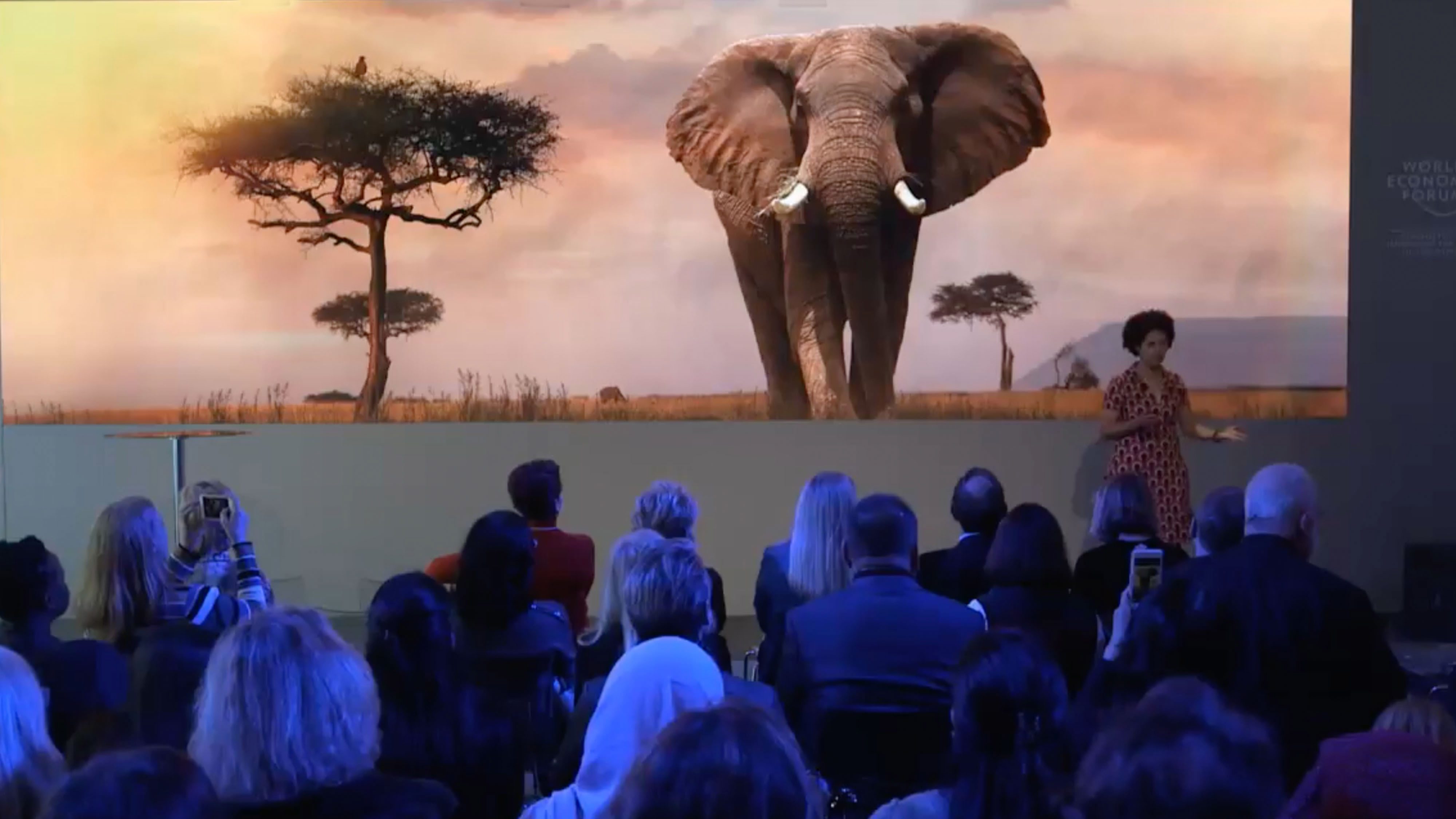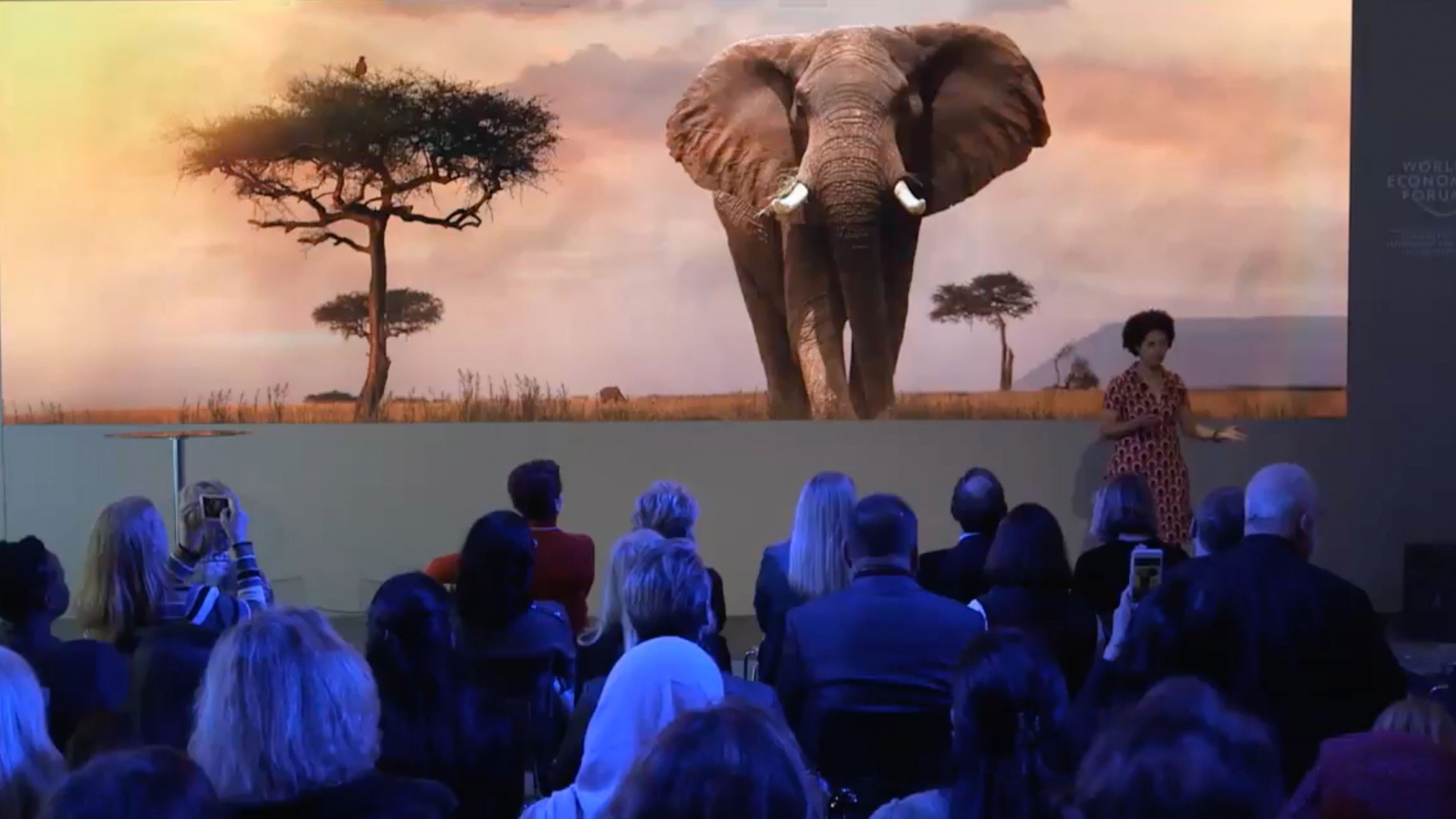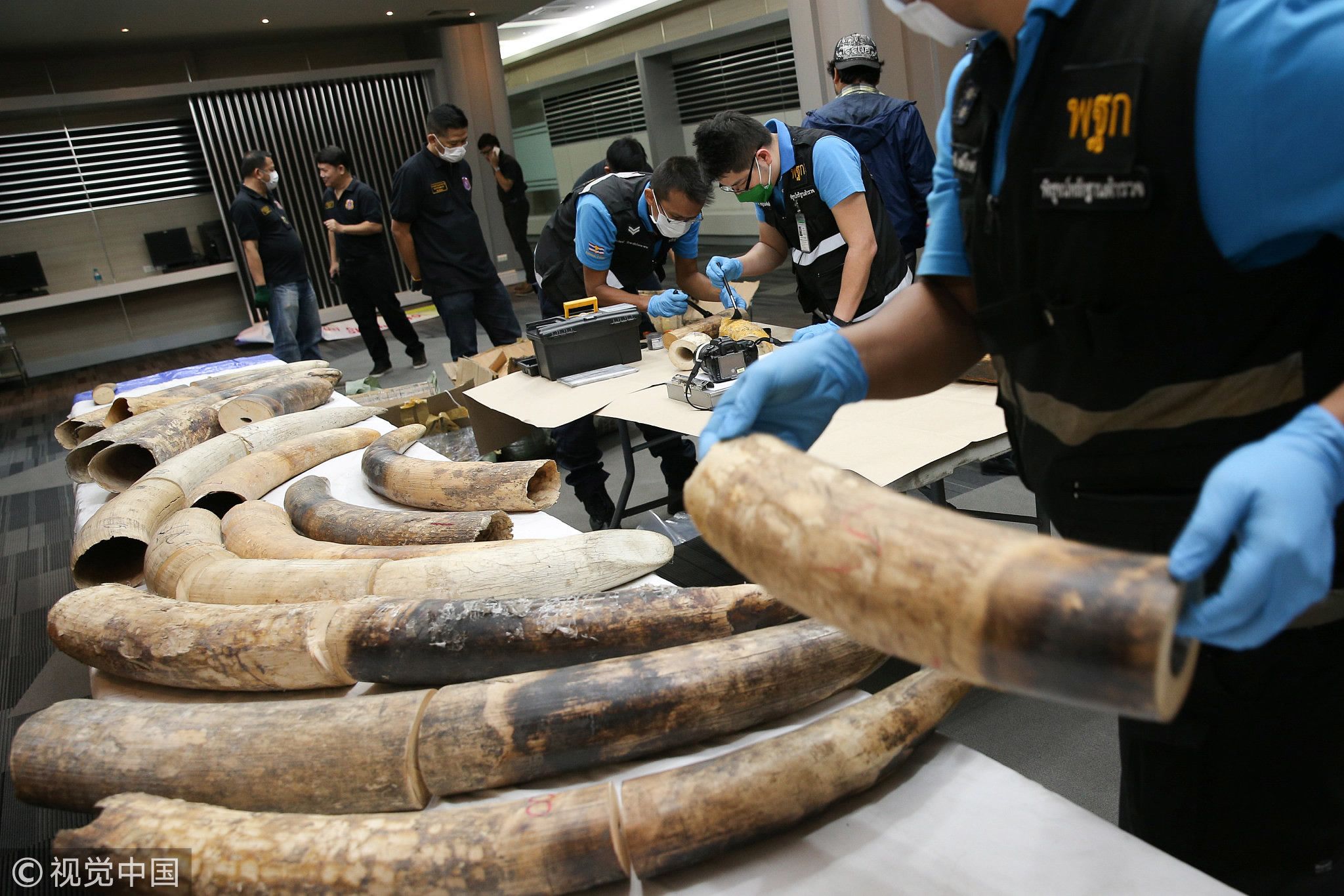
Tech & Sci
16:36, 28-Jan-2018
African wildlife activists look towards China to combat elephant poaching
Alok Gupta

After developed nations backed out of a complete ban on ivory trade, wildlife activists are seeking a greater role for China in saving African elephants from poaching.
A leading African wildlife activist has called on Chinese President Xi Jinping to issue a statement or an appeal to people not to buy ivory.
At a World Economic Forum (WEF) session titled "Hope for Elephants" and held on Thursday in Davos, Pauala Kahumbu, CEO of WildlifeDirect, said she is thrilled with China's ban on ivory trade as she fielded questions on the subject.
Kahumbu pointed out that because of the large number of containers going into the Chinese ports every year, it is impossible for law enforcement agencies to search each one of them.

Pauala Kahumbu, CEO of WildlifeDirect, during a World Economic Forum session entitled "Hope for Elephants". /WEF Photo
Pauala Kahumbu, CEO of WildlifeDirect, during a World Economic Forum session entitled "Hope for Elephants". /WEF Photo
"I would call on China’s President to make a personal statement or appeal to people not to buy ivory," she said. "A message from the President would make a big impact."
Read More: China to completely ban ivory sales
Prince of Monaco Albert II also attended the session, and said, "The real danger that threatens elephants and likewise other species stems from the same cause which is human activity. The cause also lies in the customs that some countries attach to ivory."
Kahumbu noted that every year more than 30,000 African elephants are poached for ivory. "That means one African elephant is killed every 15 minutes."
As a result, Tanzania’s tusker population dropped by 76 percent in just five years. The Democratic Republic of the Congo and Sudan are facing the worst: Poachers have decimated their elephant population by more than 90 percent.
"African elephants are paying the price of ivory demand in countries like China, the Philippines, Japan, and Thailand. This catastrophe is because of a decision taken in 2000 and 2002 to re-open ivory trade," she said.
Developed nations turn their backs on complete ivory ban
Peter Knights, CEO of WildAid, said in an interview with CGTN that in recent years, China has been taking a leading role in banning ivory trade but developed nations including the US, the UK (and the EU), and Japan are backing out.
"The Chinese government took a tough stand to ban the global trade of ivory during the Convention on International Trade in Endangered Species of Wild Fauna and Flora (CITES) meet at Johannesburg, but developed countries backed out," Knights told CGTN.
He added that at present African nations are paying the price by investing millions of dollars to protect elephants.
"There is a war raging in the national parks of Africa to protect elephants. It’s unfortunate that developed nations are backing out from supporting a complete ban on ivory trade."
Experts believe that China’s ivory ban needs a global support to curb elephant poaching. The impact of the Chinese ban is already showing visible signs with a spate of seizures of illegal ivory and arrests of ivory kingpins.

Thai customs officials have seized 148 kg of ivory worth 15 million Thai baht (469,000 US dollars) coming from Nigeria, at Bangkok Suvarnnabhumi airport, authorities said on January 12, 2018. /VCG Photo
Thai customs officials have seized 148 kg of ivory worth 15 million Thai baht (469,000 US dollars) coming from Nigeria, at Bangkok Suvarnnabhumi airport, authorities said on January 12, 2018. /VCG Photo
Gabon law enforcement authorities arrested late last year Abdoulaye Mohamoud Ibrahim, a Chadian national running one of the largest illegal ivory rackets.
A few weeks later, on January 5, around 48 kilograms of African elephant ivory, including three large tusks, worth around 15 million baht (469,800 US dollars), were seized in Bangkok.
"These arrests are probable outcomes of the Chinese ban that led to illegal ivory being re-directed to its source leading to the seizures," Knights said.
Fearing seizures, arrests and crackdowns, smugglers are slowly shifting the illegal ivory market to other countries. "We have confidential information that Laos is becoming a hub of ivory trade after the Chinese ban," Knights revealed.
Ivory prices crashing by more than 50 percent and surveys pointing out that the Chinese are now less likely to buy ivory are significant outcomes of the ivory ban. However, even after the price slump, ivory is still a profitable venture for poachers and smugglers.
"Earlier, a kilogram of ivory was worth 3,000 US dollars, and at present, it’s around 1,500 US dollars per kilogram," Kahumbu added, "It’s still a lucrative business for poachers."

SITEMAP
Copyright © 2018 CGTN. Beijing ICP prepared NO.16065310-3
Copyright © 2018 CGTN. Beijing ICP prepared NO.16065310-3